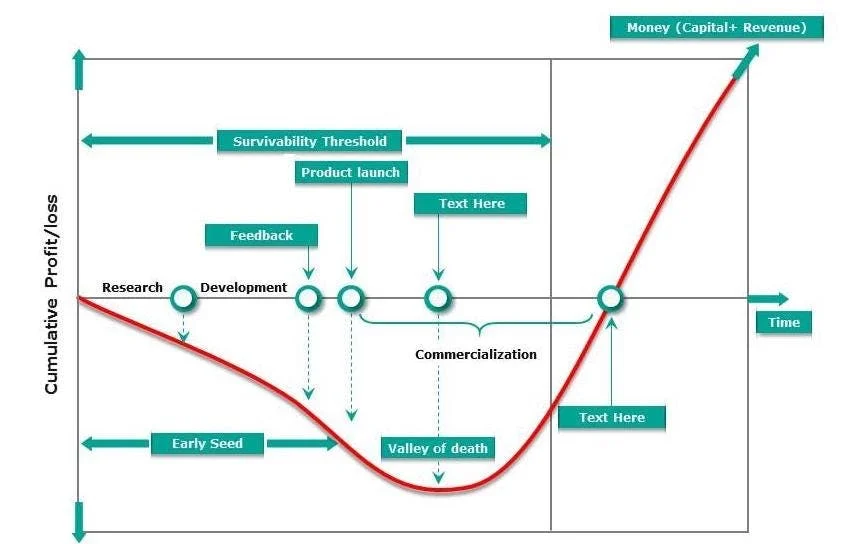Your First Win: The Founder’s New Chapter

Success usually comes to those who are too busy to be looking for it.
Henry David Thoreau
Dear Reader,
As a startup founder, understand this; One customer is impossible. Ten is herculean, but reach a hundred, and a thousand becomes inevitable. #StartupMomentum 🚀 (𝕏 tweet this)
The startup founder’s first win is beautifully brutal: the stars align just enough to give you a glimpse of what could be just as the universe hands you its invoice. #YourFirstWin 🌟 (𝕏 tweet this)
^^ Sorry, couldn’t decide which opener to drop first, take them as dual pillars of this weeks journey….
Last week’s discussion on choosing kindness, even when it’s tough, struck a chord, thank you for the 1,000+ responses I am working through in my inbox.
This week builds on our last chat about failure, the founder’s rite of passage. It’s not about failing fast; it’s about learning faster. Winning is no different; it’s about leveraging that win to learn, adapt, and set the stage for the next win.
We have all been there, the months before you ever have a win, it’s you and your crew in the garage, selling against yourselves dreaming of what could be. Your first win catapults everything into reality, and spoiler alert; it’s no easier.

TLDR; Your first win is a game-changer but it’s just the start. Leverage it to learn, adapt, and fuel growth. Beware of pitfalls like ego inflation and cash flow issues. Alpha profits can be a secret weapon. Do whatever it takes, but keep your eyes on long-term vision. Listen to your customers; they’re your North Star. Win forward.
You’ve been fighting, and then it happens, not by accident, probably not by surprise, but likely a mix of luck, hard work and being in the arena for long enough. The first customer signs, the first investor says yes, the first time your product actually does what you say it does, or just something in the universe lets you know you’re doing the right thing.
That first win is such a high, your “I f*cking told you” moment. Everything changes, now the real work starts, but be careful that the win doesn’t give you Caesar-like arrogance, it happens, all the time, and it’s fatal.
Your first win changes the game. Your team sees you as the right leader to rally behind, that they made the right decision. Welcome to the Valley of Death; your sales don’t cover operating costs…. The customer pays monthly, but you need more cash to deliver. Your options? Secure investment, lower burn, take debt, joint ventures, you do what pivotal founders do: work it out, whatever it takes. You fight.
The Valley of Death
The difficulty of covering negative cash flow while waiting for a startup to generate customer revenue.

The catch with your first win? It’s a double-edged sword. It lets you step back from the cliff’s edge briefly, only for the universe to shove you right back. It’s this moment, bigger than the win itself, that will keep you in the game during the long stretches of nothing, the era of zero traction waiting for you next does of founder’s dopamine aka market validation.
Whatever it took to get this win, whatever might be working, do it longer. Founders race to scale it, optimize it, manage it, an “it” which is both undefined, a bit of an outlier and includes a lot unknown. Founders race to level up, when instead, if you think you have something that kinda works get your impatience under control and stay with what seems to be working longer. (The ACOR playbook)
Do not confuse this win with product validation; it’s not, it’s a validation of the problem you’re tackling and your ability to sell that vision. It’s a signal, a hint. It’s your first real dialogue with the market, and this is the moment when you learn about your customer and start to understand your north star.
Most of your first customers will churn if you don’t fight like hell to keep them. Why? Because you’re a startup, and startups are notoriously hard to do business with and as you are not contractually, relationshipy or technically intertwined with the organization, you are easy to cut loose.
Your processes aren’t streamlined, support is likely subpar, and every feature you promised takes longer to deliver. Plus, your product probably isn’t as sticky as you think, if at all. Track, manage, and understand your churn, ask the questions, no assumptions. Be relentless in making your roadmap retention-focused. Double down on onboarding, it’s probably 100x worse than you think. Watch customers go through it. Fight churn like hell; it’s not just a canary but also a signpost for necessary pivots.
You can’t get to a second customer without nailing the first. Even if it means stepping into the “MTV Deal Trap” – taking a crap deal for the illusion of a big break. Early customers are the training ground for learning, adapting, and gaining real-world leverage. Finding your unfair advantage, your arbitrage opportunity.
Alpha profits are your secret sauce, the extra margins on top of your base offering. These extra revenue points from customer requirements or implementation assistance can be game-changers. Design for customization but build for configuration (platform). One customer’s ‘must have’ today is another’s tomorrow and if they are willing to pay for it, it’s a revenue unlock. Upfront fees for implementation or pro services can be your fuel. It’s the founder’s hack: use customer CapEx to run your OpEx.
So when a custom request arrives, don’t auto-reject. Ask what saying yes could fund and under what conditions you can make it a win-win. Can this fund an engineer? Speed up the roadmap? If you can charge enough for a custom feature to hire an engineer, and that engineer spends 80% of their time on that feature and 20% on another project you’ve been wanting to tackle, you’ve just leveraged alpha profits to fuel your growth.
This is all an opinion; alpha profits might distract you, might be harder than fundraising, taking a crap deal to get your first customer might be setting a precedent, building into customer dollars is dangerous, sure. It’s not universal, it’s a strategy. Whatever you do in the short term should align with your long-term vision.
Ultimately, do whatever it takes, but make sure it takes you where you actually want to go.
Until next week. Win forward.
— James